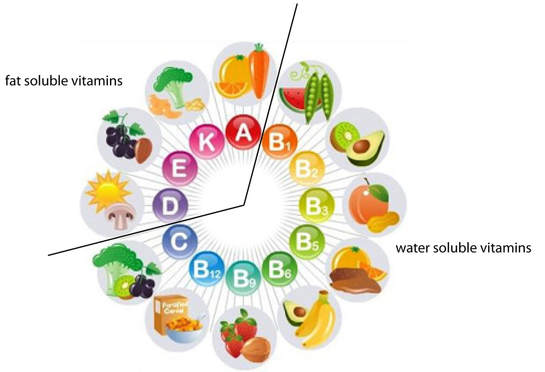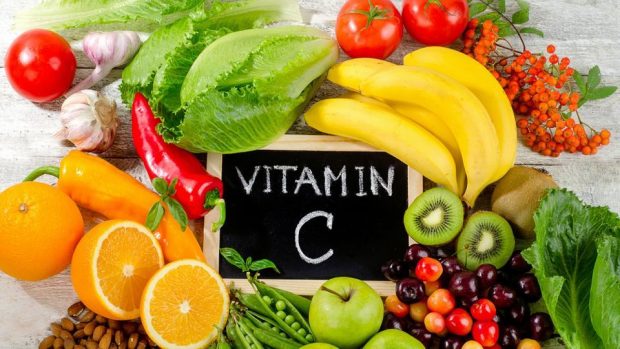Do you know the difference between water-soluble vitamins and fat-soluble vitamins? Both are important. Learn all about water-soluble vitamins here.
Do you suspect you might not be getting enough vitamins through your diet?

If so, you should consider taking supplements to offset your vitamin deficiency. According to the Council for Responsible Nutrition, almost 70% of Americans take this approach to ensuring they’re getting enough vitamins into their system every day.
You should also learn about the different types of vitamins that you need to be putting into your body on a regular basis. More specifically, you should find out more about water-soluble vitamins and the role they play in your overall well-being.
If you’re not familiar with water-soluble vitamins, now is the perfect time for you to sit back and discover what they are and why they’re so important. Continue reading to learn everything you need to know about them.
What Are Water-Soluble Vitamins?
There are two main types of vitamins that your body needs to survive. These vitamins are categorized by their solubility—or their ability to dissolve in a specific solvent.
There are water-soluble vitamins as well as fat-soluble vitamins. Water-soluble vitamins are able to, as their name would suggest, dissolve in water, while fat-soluble vitamins need liquid fat to dissolve.
Both of these types of vitamins are important to your system. But today, we’re going to focus on water-soluble vitamins and talk about why they’re so essential to you.
How Many of Them Are There?
There are only four fat-soluble vitamins that you need to worry about working into your diet. Vitamin A, vitamin D, vitamin E, and vitamin K are the fat-soluble vitamins that your body requires.
But there are more than twice as many water-soluble vitamins that need to be a part of your daily diet. These vitamins are:
-
-
- Vitamin B1 (also referred to as thiamine)
- Vitamin B2 (also referred to as riboflavin)
- Vitamin B3 (also referred to as niacin)
- Vitamin B5 (also referred to as pantothenic acid)
- Vitamin B6
- Vitamin B7 (also referred to as biotin)
- Vitamin B9
- Vitamin B12 (also referred to as cobalamin)
- Vitamin C
-
Since there are so many water-soluble vitamins, it can be difficult to get them into your diet each and every day. It’s why so many people have started to rely on supplements to get their fair share of these vitamins.
How Often Do You Need to Add Them to Your System?
You don’t need to take in fat-soluble vitamins as often as you need to take in water-soluble ones. The reason for this is simple.
Fat-soluble vitamins can be stored inside your body until you need them. As long as you keep your fat-soluble vitamins at a reasonable level in your body, you won’t have to be concerned about them running out.
But the same can’t be said for water-soluble vitamins. These vitamins are not stored in your body, which is why you have to constantly replenish your body with them. Otherwise, you can run low on them and fail to enjoy all the benefits that come along with having them in your system.
What Are Some of the Benefits of Them?
Each individual water-soluble vitamin comes with its own long list of benefits. There are good reasons why you should be getting enough of these vitamins day in and day out.
For example, vitamin B1, or thiamine, plays a vital role in many of the metabolic processes inside your body. It’s responsible for taking nutrients and turning them into energy.
Vitamin B6, meanwhile, also has a very important role within your body. It’s in charge of helping new red and white blood cells to form. It helps your body to produce the energy that it needs as well.
And we can’t forget about vitamin B7, or biotin, which is believed to provide your hair, your nails, and your skin with the nourishment that they need. When you use biotin on your skin, you’ll see a noticeable difference when you look at it from now on.
Taking in enough water-soluble vitamins can work wonders for your body in so many ways. You’ll look and feel your best when you’re making it a point to get them into your system.

How Can You Work More of Them Into Your Diet?
Now that you have a better understanding of just how important water-soluble vitamins are to your body and why they matter, don’t you want to start working more of them into your diet? In many cases, tweaking your diet is an easy way to do this.
If, for instance, your body is lacking in vitamin B1 right now, there are foods you can start eating more to get this water-soluble vitamin into your system. Some good sources of vitamin B1 are:
-
- Nuts
- Seeds
- Pork
- Whole grains
- Liver
There are also supplements you can take as part of your diet to get the recommended amount of water-soluble vitamins into your system. From pills to patches, you can find these vitamins in many forms.
But regardless of how you choose to get water-soluble vitamins into your system, what’s important is that you’re putting them there. You won’t be able to take advantage of the kinds of benefits we mentioned a minute ago without finding a way to incorporate these vitamins into your life.
Do whatever you need to do to make water-soluble vitamins a bigger part of your life from now on. Almost every part of your body will thank you for doing it.
Are You Taking in Enough Water-Soluble Vitamins?
Since water-soluble vitamins are always working their way through your system and leaving your body, it’s important to replenish them at every turn. You’ll lack some of the key vitamins that your body needs if you don’t do this.
You do want to steer clear of overdoing it when it comes to taking in some water-soluble vitamins. But for the most part, you won’t be able to give your body enough of them. Find the best ways to do it and see what a big difference it makes in your life as you move forward.
Find out more about the importance of getting enough vitamins by checking out the articles found on our blog.
Read More:
Which vitamins affect your body
Workout nutrition: what and when to eat?
7 Things You Should Know to Keep Your Drinking Water Safe
All you need to know about black pepper


